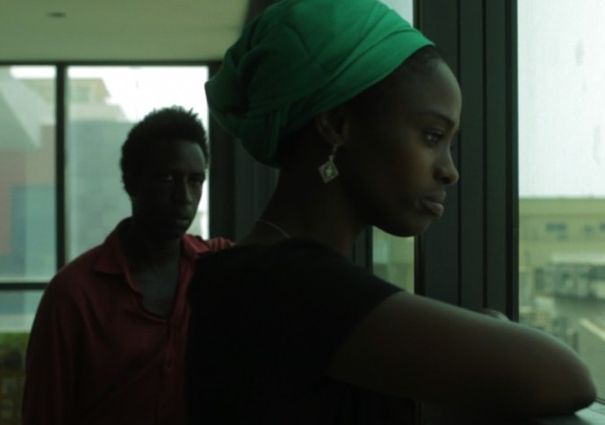Make films, not yoghurt
Talent Press Durban 2012 perticipant Katarina Hedrén talks to Alain Gomis's about his latest film TEY, in which death is polite enough to announce its arrival.

Alain Gomis's TEY
While Alain Gomis's previous two features L'AFRANCA and ANDALUCIA, take place in Europe and deal with exile, TEY (Today) follows a Senegalese man in his hometown during the last day of his life.
Everything is silent when Satché (Saul Williams) wakes up at his mother's house. As the morning progresses, more people join the family for what is essentially Satché's own wake. Beautiful words, but also accusations, fill the room as the devastated gathering pay tribute to the man everyone knows will die before the end of day.
The story plays out as a promenade through Dakar, during which Satché is confronted with defining aspects of his life. An elusive meeting with a mistress; an argument among a group of frustrated friends; violent street demonstrations; and a simulated ceremonial cleansing of Satchés soon-to-be dead body. Each incident on the way reflects a fragment and an integral part of the irregular tapestry that constitute Satchés life, a returnee to a country that others risk their lives to leave.
Accompanying Satché on his walk is his trusted companion Sele (Djolof Mbengue) who, in a similar way, has accompanied Alain Gomis throughout his career, playing leading roles in all three of his features.
The only description more frightening for a film distributor hoping to make their money back than "slow" is "African slow". Luckily, Gomis does not seem to care about that. In a painstakingly deliberate pace, only sporadically interrupted by eruptions of exaltation or rage, he invites us to share Satchés fears and regrets, as well as his determination to keep moving and milk every remaining second of life for what it's worth.
How did TEY come about?
AG: It was one of those stories that came to me. I've always heard of this concept when someone finds out when they are going to die, they try to escape, without succeeding and are forced to confront themselves. Knowing when your time is up is a blessing rather than a curse. Only if you know when, you will be able to use the remaining time in a meaningful way.
Say something about your style of filmmaking.
We talk in codes. By that I mean that we are using words and concepts that represent reality, but – as is the case with any representation or translation – rarely reach the core of a sentiment, for example, capturing it in its essence. As a filmmaker, I try to avoid these codes and go straight for the core. I love art that is truly liberated. Art made by artists that are not trying to fit into predetermined categories. I believe that only when I manage to create outside the narrow realms of such categories will I be able to talk about universal concerns in a truly unique and personal way.
How do you position yourself as a filmmaker?
Half French, half Senegalese, I am both a stranger and at home wherever I am in the world. This gives me a certain freedom to tread lines and break rules. My aim is not to tell a story, but to create a moment in time for the audience to contemplate, making the audience the engine of the story. I don’t have any answers to the questions about life and death, and no conclusion to offer. All I want to do is to strike a few chords that I hope will resonate with those who watch my films. For me it is political. I make films, not yoghurt. I am not interested in selling, but giving people the opportunity to reflect and feel. I want my films to be like music, something that is experienced emotionally and instinctively, rather than on an intellectual level. I am not interested in chasing money, and have been fortunate to access funding from sources that don't require financial return on investment.

